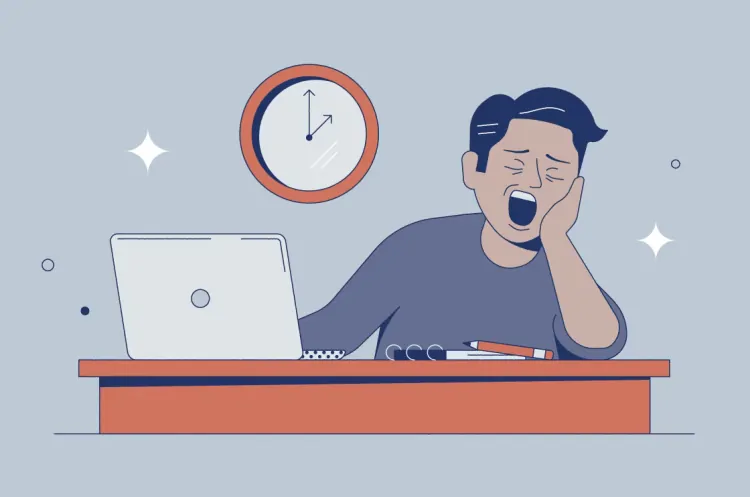What Foods Should Be Avoided with Narcolepsy?
Managing narcolepsy requires more than just medication. Your diet plays a significant role in how well you manage your symptoms.

Managing narcolepsy requires more than just medication. Your diet plays a significant role in how well you manage your symptoms, including excessive daytime sleepiness and sudden sleep attacks. Certain foods can either help or hinder your efforts to stay awake and alert. So, what foods should be avoided with narcolepsy? Let’s explore the dietary choices that may worsen narcolepsy symptoms and how proper nutrition can complement medications like Artvigil 150mg and Waklert 150mg.
Why Diet Matters for Narcolepsy
While food can’t cure narcolepsy, it can certainly influence how well you manage it. Some foods can drain your energy, while others can stabilize blood sugar levels, helping you feel more alert. By avoiding certain foods and choosing healthier alternatives, you can significantly reduce episodes of fatigue and improve overall well-being.
Foods to Avoid with Narcolepsy
1. Refined Sugars and Processed Carbohydrates
Foods high in refined sugars and processed carbs can lead to a spike in blood sugar, followed by a rapid crash. This crash can worsen the excessive daytime sleepiness that people with narcolepsy already experience. Foods to avoid include:
- Soda and sugary drinks
- Candy and sweets
- White bread and pastries
- Sugary cereals
These foods provide a quick burst of energy, but they often leave you feeling more tired afterward, making it harder to stay alert during the day.
2. Caffeinated Beverages (In Excess)
While a cup of coffee or tea may seem like a good way to stay awake, excessive caffeine intake can interfere with nighttime sleep quality. Over-reliance on caffeine can disrupt your sleep schedule, leading to even more sleep disturbances. People with narcolepsy should limit their intake of:
- Coffee
- Energy drinks
- Caffeinated sodas
Instead, try limiting caffeine to the earlier part of the day, so it doesn’t interfere with your nighttime sleep routine.
3. Alcohol
Alcohol is a depressant that can make you feel drowsy. It interferes with your sleep cycle by reducing REM sleep, which is particularly problematic for people with narcolepsy since REM sleep is already disrupted. Even small amounts of alcohol can worsen symptoms of excessive sleepiness, making it harder to stay awake during important tasks.
4. High-Fat and Greasy Foods
Fatty and greasy foods take longer to digest, making you feel sluggish and tired. These foods slow down your metabolism, and for people with narcolepsy, this can intensify daytime sleepiness. Avoid foods like:
- Fast food
- Fried foods
- Heavy cream-based sauces
Instead, opt for lighter, nutrient-dense meals that provide a steady energy release without overwhelming your digestive system.
5. Large, Heavy Meals
Eating large meals, especially during the day, can lead to post-meal drowsiness. A heavy lunch, for instance, can trigger an intense need to nap in the afternoon, making it difficult for those with narcolepsy to remain awake. To avoid this, try consuming smaller, more frequent meals throughout the day to maintain steady energy levels.
Foods That Can Help Manage Narcolepsy
While there are foods you should avoid, there are also many that can help manage narcolepsy. Eating a balanced diet with the right nutrients can support energy levels and improve focus. Here are a few food groups to incorporate into your diet:
1. Complex Carbohydrates
Unlike processed carbs, complex carbohydrates provide a steady source of energy without causing a blood sugar crash. These include:
- Whole grains like oatmeal, quinoa, and brown rice
- Vegetables like sweet potatoes and leafy greens
Complex carbs digest slowly, giving your body sustained energy throughout the day.
2. Lean Proteins
Proteins help maintain energy and keep you feeling full longer. Consider adding lean proteins such as:
- Chicken
- Fish
- Beans
- Tofu
These foods support energy levels and improve focus, helping you manage daytime drowsiness more effectively.
3. Omega-3 Fatty Acids
Omega-3 fatty acids, found in fish like salmon, flaxseeds, and walnuts, are excellent for brain health. These fatty acids can help regulate mood and cognitive function, which are often affected by narcolepsy.
4. Fiber-Rich Foods
Fiber helps regulate blood sugar levels, preventing the spikes and crashes that contribute to tiredness. Incorporating high-fiber foods like:
- Fruits (such as apples and berries)
- Vegetables
- Legumes
These can help stabilize energy and reduce fatigue.
How Medications Fit Into the Picture
While diet is crucial in managing narcolepsy, medications like Artvigil 150mg and Waklert 150mg are often necessary to control excessive daytime sleepiness.
Artvigil 150mg: A Wakefulness Aid
Artvigil 150mg is designed to promote wakefulness and increase focus in people with narcolepsy. It works by stimulating brain chemicals responsible for alertness, helping you stay awake and active during the day.
Waklert 150mg: Enhancing Alertness
Waklert 150mg is another effective option for managing daytime sleepiness. Like Artvigil 150mg, it helps reduce sleep attacks by boosting wakefulness. Both medications can be highly effective when used in combination with a proper diet that avoids foods that worsen narcolepsy symptoms.
Conclusion: The Importance of Dietary Choices
Diet plays a crucial role in managing narcolepsy. While medications like Artvigil 150mg and Waklert 150mg are essential for promoting wakefulness, avoiding foods high in sugar, fat, and caffeine can further enhance your ability to stay awake and alert. Instead, focus on a diet rich in complex carbs, lean proteins, and healthy fats to maintain consistent energy levels throughout the day. By combining a balanced diet with the right medications, you can better manage your narcolepsy and improve your quality of life.
What's Your Reaction?














